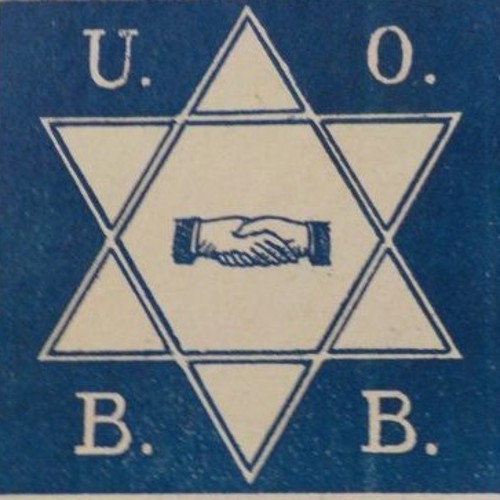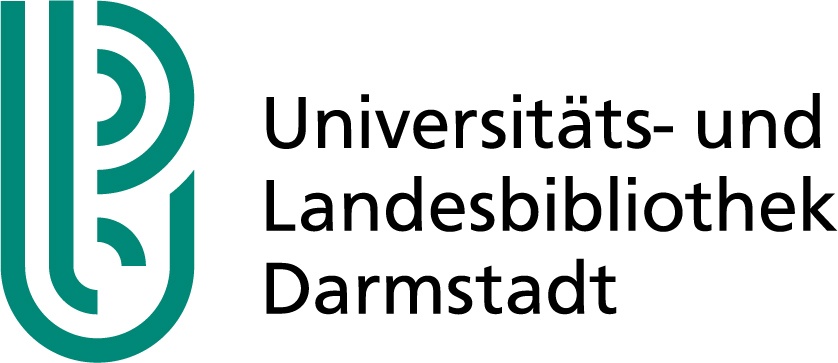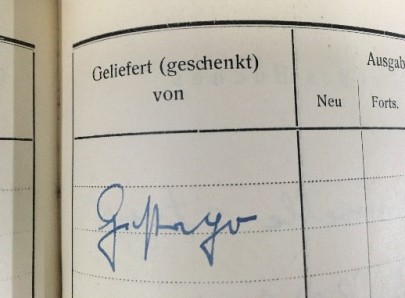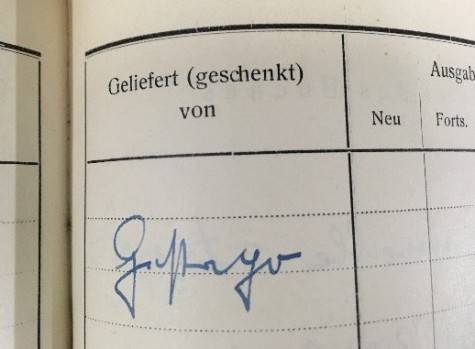Definition Nazi loot
Removal due to persecution means that the previous owner of the book belonged to the group of persecuted individuals. This includes people who were persecuted for racist, religious or political reasons as well as their associations or corporations that were then dissolved.
Another condition is that the book was sold by the owner between 30 January 1933 and 8 May 1945. So the issue not only concerns books that were confiscated directly by the persecuting authorities, but also forced sales – usually well below the actual value – e.g. to antiquarian bookshop
Political background
An important impetus for provenance research in Germany came from a 1998 conference in Washington on assets from the time of the Holocaust. The participants demanded that German cultural institutions search their collections for Nazi loot and return it to the former owners or heirs or legal successors. This was the subject of the Washington Principles adopted at the conference. In 1999, the German Federal Government, the Länder and the national associations of local authorities issued a “Common Statement”". This basically included libraries as well as museums. Over the course of time, many libraries began searching for Nazi loot. Some projects have been completed, while new applications are being submitted for others – as is the case at TU Darmstadt.

"Never again" is now!
The ULB remembers the persecution of Jewish life in Darmstadt and Germany during the Nazi-period. The former property, such as the looted books of persecuted, emigrated, or murdered victims of the Nazi-regime can be considered as a very personal testimony. Every single book is a memorial of remembrance and gives insight into an individual destiny.



